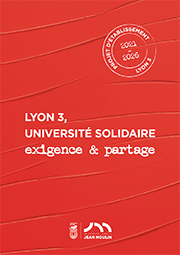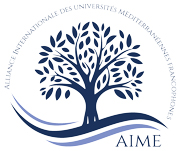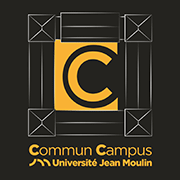AccueilRechercheProgrammes et productions scientifiquesThèsesThèses soutenuesThèses soutenues - 2006-2021Thèses soutenues - 2015
-
Partager cette page
- Recherche,
BERNAND Younès
Les temporalités en droit de la famille
Publié le 7 octobre 2015 – Mis à jour le 20 décembre 2018
Thèse en Droit mention Droit de la famille soutenue le 17 septembre 2015
Les temporalités désignent tout à la fois le caractère de ce qui s'inscrit dans le temps et une forme d’agencement du passé, du présent et du futur. L’évolution du droit de la famille marque le passage du modèle traditionnel, fondé sur l’idée d’un mariage perpétuel et source de pérennité des liens familiaux à un nouveau modèle, empreint de ? présentisme ?, construit sur l’indissolubilité du couple parental. Devant le risque de dyschronie de la famille et de rupture du continuum de liens familiaux abandonnés à l’instabilité provoquée par la contraction du temps conjugal, le législateur a été amené à renforcer et à consolider la parenté. L’objectif parait de plus en plus de faire survivre le ? couple parental ? au ? couple conjugal ?, au nom des intérêts bien compris de l’enfant. On observe, dès lors, un déplacement de la durée de la conjugalité à la parenté. Dans une logique de dissociation de la conjugalité et de la parenté, le temps subjectif, conditionnel et instantanéiste de la conjugalité - s’oppose au temps objectif, inconditionnel et perpétuel de la parenté.
Temporalities signify both all that which, by its nature, occurs in time, and an organization of the past, present and future. The evolution of family law has marked the passage from a traditional model, one based on the idea of perpetual marriage and a source of unending family ties, to a new model imprinted by “presentness”, one built on the indissolubility of the parental couple. Legislators are being led to reinforce and consolidate ideas of parenthood as they are faced with the risks presented by familial desynchronization and of the breakdown of the continuity of family ties abandoned due to the instability met by the shortened time of conjugal life. It would seem that the goal is to let the “parental couple” outlive the “conjugal couple” in order to serve the best interests of the child. Consequently, we can observe a shift in duration from conjugality to parenthood. Through a logical reasoning of disassociating the conjugal from the parental, the conditional, subjective and transitory time of conjugality becomes contradictory to the unconditional, objective and perpetual time of parenthood.
Temporalities signify both all that which, by its nature, occurs in time, and an organization of the past, present and future. The evolution of family law has marked the passage from a traditional model, one based on the idea of perpetual marriage and a source of unending family ties, to a new model imprinted by “presentness”, one built on the indissolubility of the parental couple. Legislators are being led to reinforce and consolidate ideas of parenthood as they are faced with the risks presented by familial desynchronization and of the breakdown of the continuity of family ties abandoned due to the instability met by the shortened time of conjugal life. It would seem that the goal is to let the “parental couple” outlive the “conjugal couple” in order to serve the best interests of the child. Consequently, we can observe a shift in duration from conjugality to parenthood. Through a logical reasoning of disassociating the conjugal from the parental, the conditional, subjective and transitory time of conjugality becomes contradictory to the unconditional, objective and perpetual time of parenthood.
Mots-clés : Temporalités – Présentisme - Précarité – Instantanéité – Stabilité – Continuité – Conjugalité – Parenté
Keywords : Temporalities – Presentness – Instability – Instantaneity – Stability – Continuity – Conjugality – ParenthoodDirecteur de thèse : Hugues FULCHIRON
Membres du jury :
M. Pierre MURAT, Professeur des universités, Université Pierre Mendès France
M. Jean HAUSER, Professeur émérite, Université de Bordeaux IV
M. Fran?ois CHENEDE, Professeur des universités, Université Jean Moulin Lyon 3
Mme Anne-Marie LEROYER, Professeur des universités, Université de Sorbonne Paris I
M. Hugues FULCHIRON, Professeur des universités, Université Jean Moulin Lyon 3
Présidente du jury : Anne-Marie LEROYER
Mention : Très Honorable avec les félicitations
Equipe d'accueil : Equipe de droit privé
Documentation
Mise à jour : 20 décembre 2018







